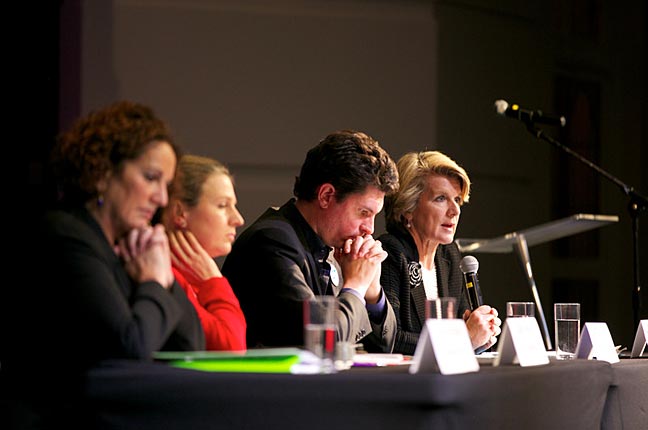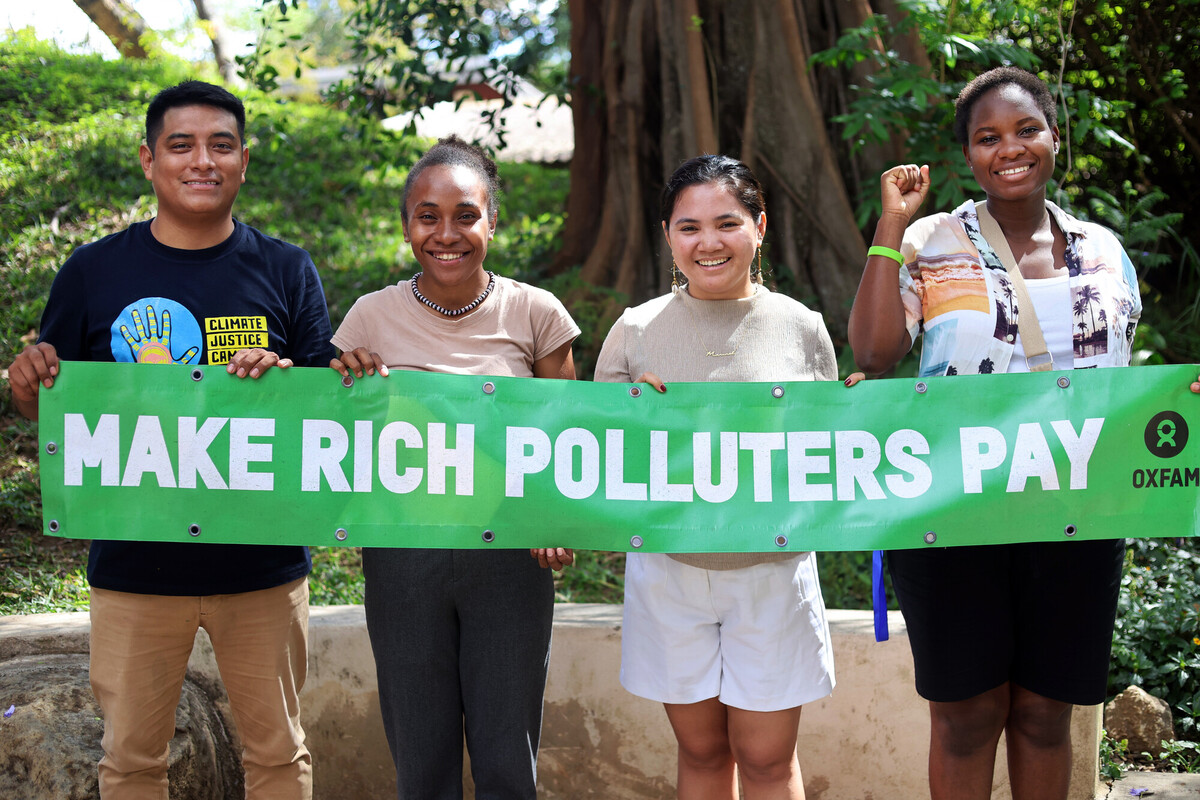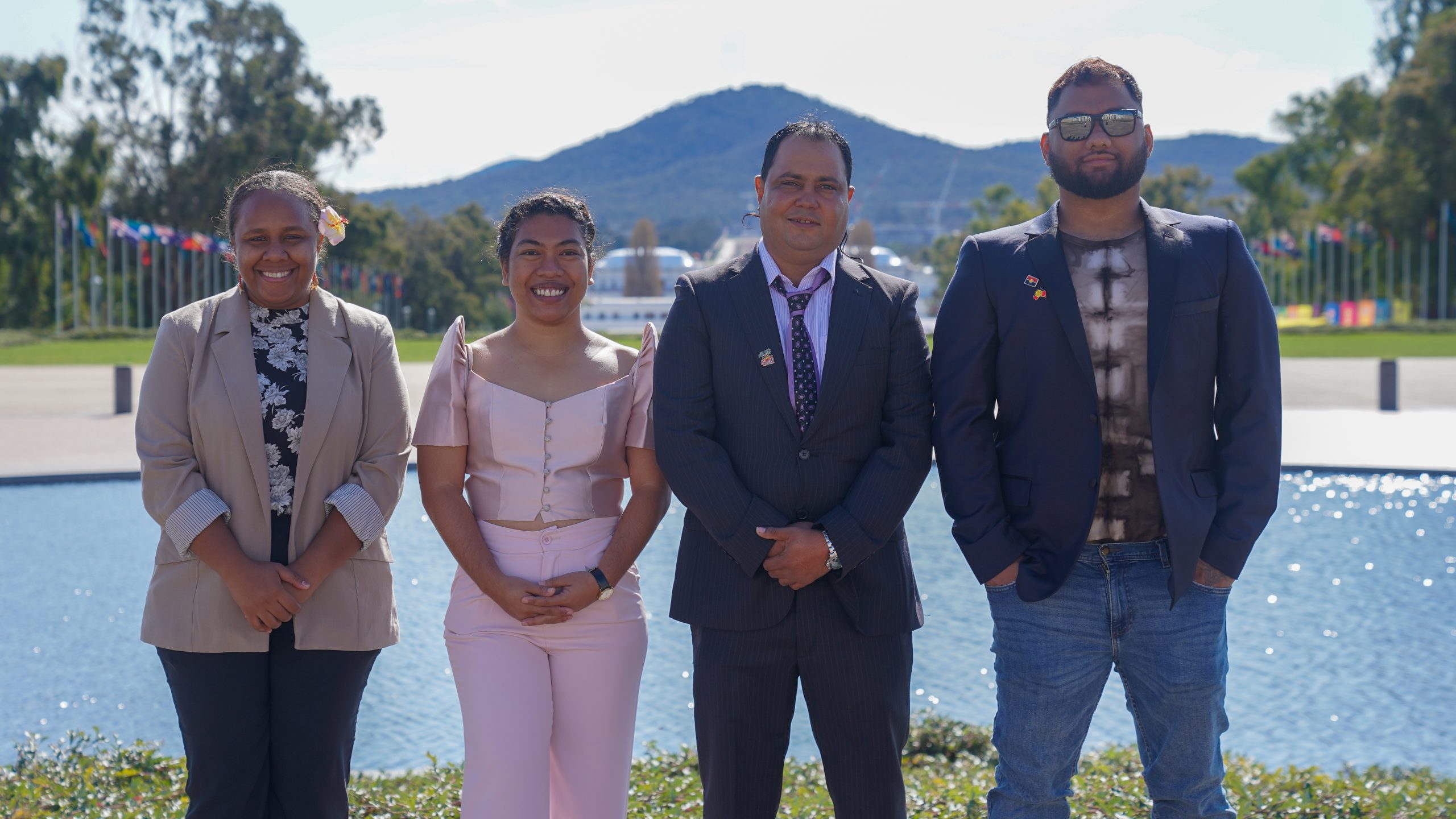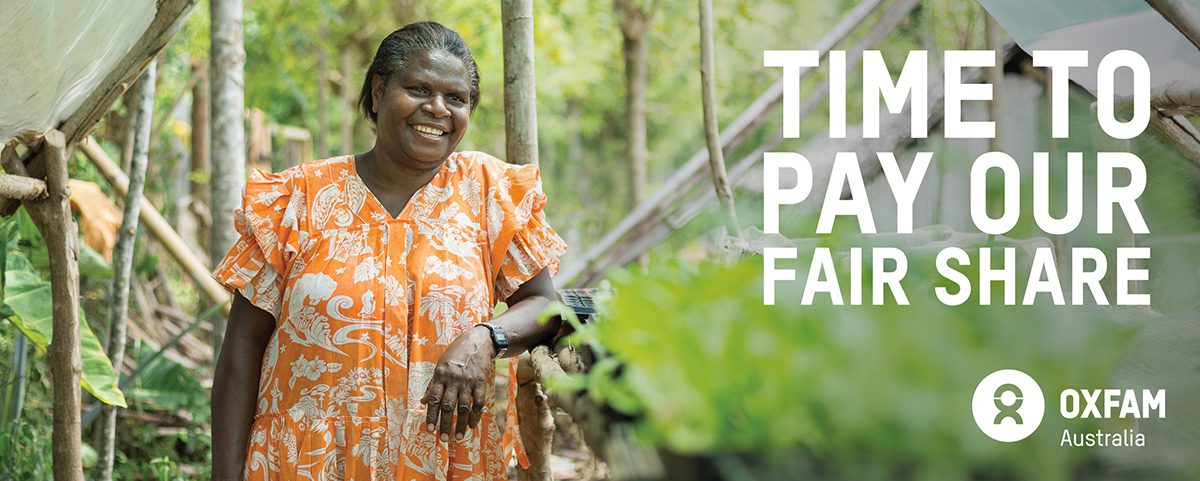By Paddy Cullen, Campaigns Coordinator (WA)
Around 400 people crowded into the Subiaco Church of Christ last Tuesday (July 2) for a Q and A panel discussion on poverty and foreign aid with the shadow minister for foreign affairs Julie Bishop, Senator Scott Ludlam (Greens), Senator Louise Pratt (ALP) and Oxfam Chief Executive Dr Helen Szoke, who is also a co-chair of the Make Poverty History coalition.
Dr Szoke started the evening by detailing a list of achievements and challenges in halving poverty since 1990 published in the United Nations Millennium Development Goals Report 2013 which coincidentally came out the same day as the forum was held.
“There’s a lot to be proud of in how Australian aid has helped to improve the lives of some of the world’s poorest and most vulnerable people,” she said. “But we need to finish the job.”
Make Poverty History is calling for Australia to reach the United Nations recommendation of giving 70 cents in every $100 (0.7%) in national income to overseas aid by 2020, with an intermediate goal of giving 50 cents in every $100 (0.5%) of national income by 2016.
Australia currently gives 37 cents for every $100 (0.37%) of national income to overseas aid, which is well under the average for rich countries.
Ms Bishop said the coalition supported moving to giving 0.5 per cent of national income in aid, however couldn’t make a commitment of when that would be until they had seen the books. She said she was keen to examine ways to spend aid more effectively and set key performance indicators for aid spending. Ms Bishop also said she would like to see aid focus on our region and be used to encourage economic development.
Senator Pratt talked about the vital role of overseas aid as a mechanism in creating social inclusion and promoting human rights in vulnerable groups that suffer greater levels of poverty. She gave an example of work being done on HIV/AIDS to de-stigmatise people who are HIV positive so that they can gain access to medication, educational materials and support services.
Senator Ludlam said the Greens supported the move to reach the 0.7 per cent spending target for foreign aid. He said there would be enough money to do this if the government reprioritised spending, for example, if foreign aid took precedence over increasing the defence budget. He also said subsidies to polluting industries should be stopped and renewable energy encouraged as climate change is having a profound effect on poverty.
The entire panel agreed that foreign aid should not be diverted to domestic asylum seeker accommodation and all felt that there was merit in having a minister for aid and development.
At the end of the evening, Micah Challenge gave the panellists a Poverty and Justice Bible while Make Poverty History gave each panellist a copy of the United Nations Development Goals Report 2013 along with photographs of aid projects that support women small scale producers, including women farmers and women fishers.
The United Nations has repeatedly called for more effort to providing women with the same opportunities as men to access land, capital and resources to produce food, which could help to lift 100-150 million people out of hunger.



